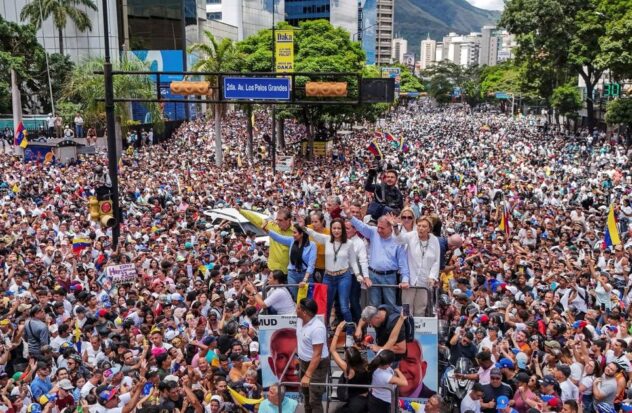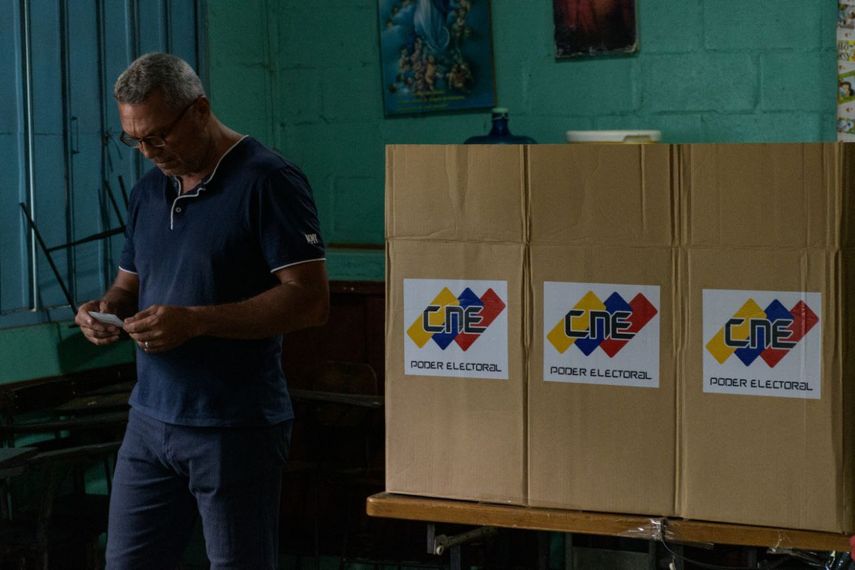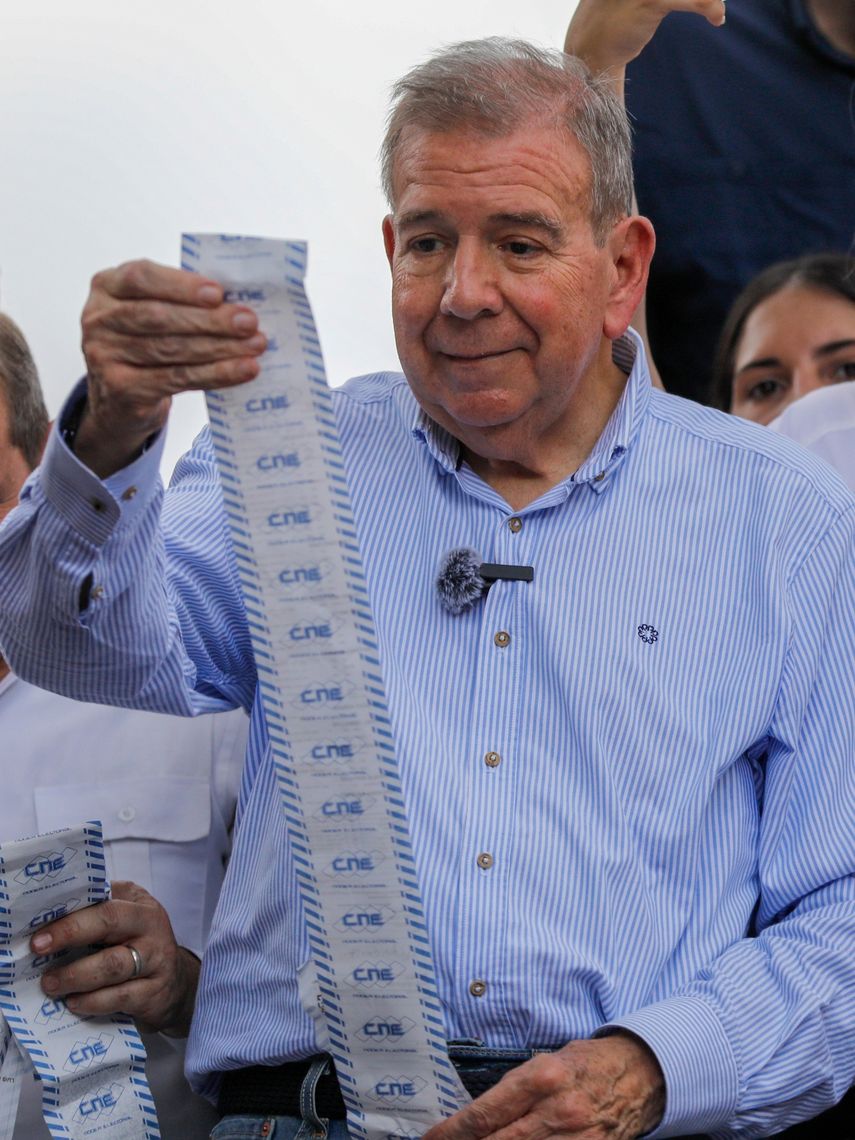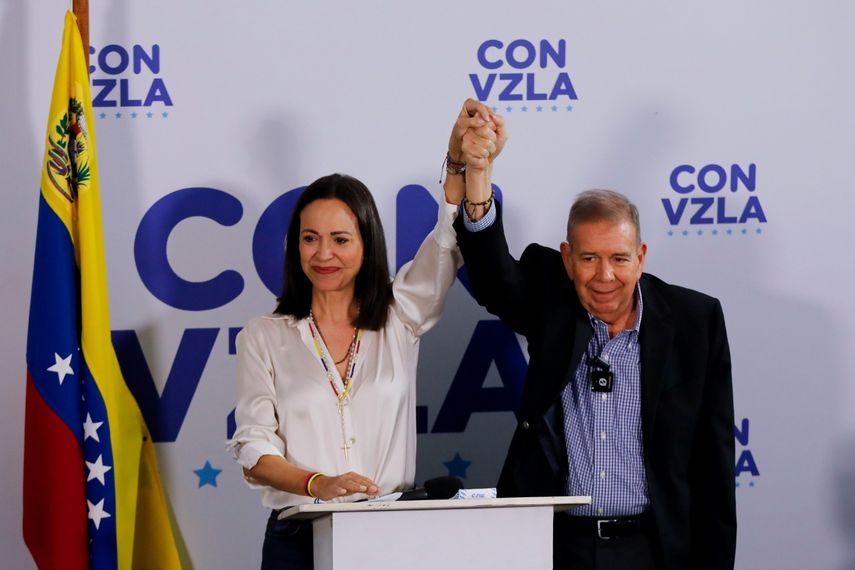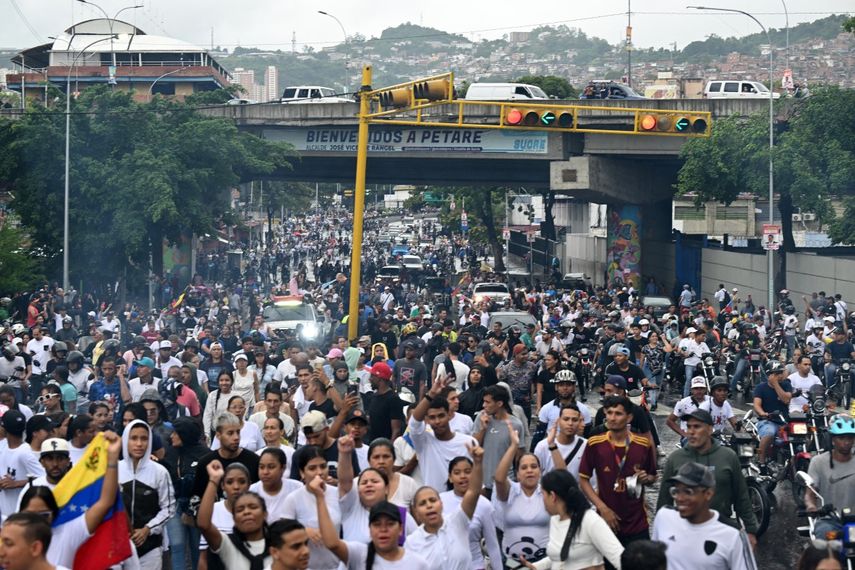Voting records — which resemble very long sales receipts — have long been considered the definitive proof of election results in Venezuela. Opponents knew they had to obtain as many of them as possible to refute what they anticipated would be an unfavorable result to be announced by the pro-Chavez National Electoral Council (CNE).
Months of preparation and the involvement of thousands of volunteers were required for this titanic task.
Their work earned Maduro and his loyal CNE global condemnation, including from close regional allies, and fueled anger among Venezuelans fed up with their nation’s plummeting economy. In response, the government called for the arrest of opposition leaders, capping an election season marred by repression and irregularities.
This account of the opposition’s efforts is based on public statements as well as interviews with party representatives, volunteers and other people involved, all of whom spoke on condition of anonymity for fear of regime reprisals.
Discipline
Tens of thousands of volunteers participated in training workshops across the country in recent months. They learned that, under the law, they could be inside polling stations on election day, stationed near voting machines, from before the polls opened until the results had been transmitted electronically to the National Electoral Council in Caracas.
Organizational discipline was key to their success, as the ruling United Socialist Party of Venezuela exercises tight control over the voting system. Polling stations are guarded by soldiers, civilian militias, police and people loyal to the PSUV.
On Sunday, the authorities tried to prevent opposition volunteers from entering the polling stations, and in some places they succeeded. But in others the volunteers were unwavering and, once inside the polling stations, did not leave, in some cases until after 11 p.m.
“They fought with their law in hand, with the voting manual in hand, and they managed to get in,” Machado said on Sunday, before the polls closed. He called party representatives and other volunteers “the heroes of this process.”
The 90,000 party representatives were instructed to obtain a copy of the tally sheets – printed from electronic voting machines after the polls closed – before the results were transmitted to the council.
“Our witnesses have the right to their voting record,” Machado said. “No witness leaves their polling station without the record in hand.”
The volunteers were also trained to use a custom-made app to report irregularities at polling stations, such as delays in opening or power outages, and to scan a QR code printed on each tally sheet.
Sausage”
Venezuelans have been using electronic voting machines for about two decades. The machines record votes, provide a paper receipt to each voter and, after the polls close, print out copies of the tally sheets, the length of which has led to them being nicknamed “chorizo.”
The tallies show vote totals broken down by candidate, the QR code and signatures of party representatives, an electoral body employee and poll workers who participated after being selected by lottery.
Each party representative is entitled to a record of the vote count, while another copy is placed in an envelope and delivered to the headquarters of the National Electoral Council.
Infighting and disorganization had consistently limited the ability of government opponents to secure and safeguard vote recounts in previous elections. But Machado said the opposition had obtained more than 70 percent of the votes. That figure would eventually grow to more than 80 percent.
Scanning the QR codes gave a team of campaign workers immediate access to the voting results, which they tabulated Sunday night and Monday.
The National Electoral Council has not yet published the results on its website, which has been down since Monday. Although it is not required to publish images of the tally sheets, it has previously shared the totals for each tally sheet.
The council reported Monday that Maduro received 5.1 million votes, while Edmundo Gonzalez, representing the opposition coalition Democratic Unitary Platform, received more than 4.4 million. Council President Elvis Amoroso provided updated results on Friday of 96.87 percent of the vote counts, which gave Maduro 6.4 million votes and Gonzalez 5.3 million.
Eight other men ran for president, including Enrique Marquez, a former member of the electoral council who denounced the official results and lashed out at authorities for a lack of transparency.
“Most of our witnesses… were prevented from accessing the voting centers,” he told reporters. “Those who were able to enter witnessed the process and waited for the tally sheets, but the sheets were not delivered as required by law and regulations. Not only does this violate the law: it creates obscurity, opacity, and a lack of transparency.”
The opposition, electoral experts and foreign governments are questioning the official results, including Brazilian President Luiz Inácio Lula da Silva and Colombian President Gustavo Petro, both allies of Maduro, who have urged him to release the results.
By bike, motorcycle, car or boat
Getting the “chorizo” from each of the 30,000 voting machines was only half the battle. The campaign had to scan them all with equipment specially designed to copy the tally sheets.
This is where more volunteers came into play. If party representatives did not feel safe or could not reach the scanner sites, volunteers would meet the representatives, take the sheets and transport them by motorbike, car, bicycle or even boat to the appropriate locations.
By the time Amoroso appeared on television to hand Maduro a document certifying his victory, the opposition had already scanned more than half of the tally sheets. Hours later, Machado and González appeared before reporters and announced the figures that shocked the country: the tally sheets show that González received approximately 6.2 million votes versus 2.7 million for Maduro.
The scanned tallies were also posted to a searchable website, and anyone who voted could use their government identification number to look up the tally sheet belonging to the machine they had used to vote.
The government then claimed that the electoral council’s website had been hacked. The president of the pro-Chavez National Assembly, Jorge Rodriguez, insisted that Maduro was the undisputed victor and called his opponents violent fascists. He called for the arrest of Machado and Gonzalez.
Since then, Maduro has faced an avalanche of criticism. International observers say they have been unable to verify the results. Regional allies have urged the government to publish all the vote-counting records. On Thursday, the U.S. government congratulated Gonzalez on his victory.
“At least 12 million Venezuelans peacefully went to the polls and exercised one of the most powerful rights afforded to individuals in any democracy: the right to vote,” U.S. Secretary of State Antony Blinken said in a statement. “Unfortunately, the processing of those votes and the announcement of the results by the Maduro-controlled National Electoral Council (CNE) were deeply flawed, yielding an announced result that does not represent the will of the Venezuelan people.”
Source: AP information

